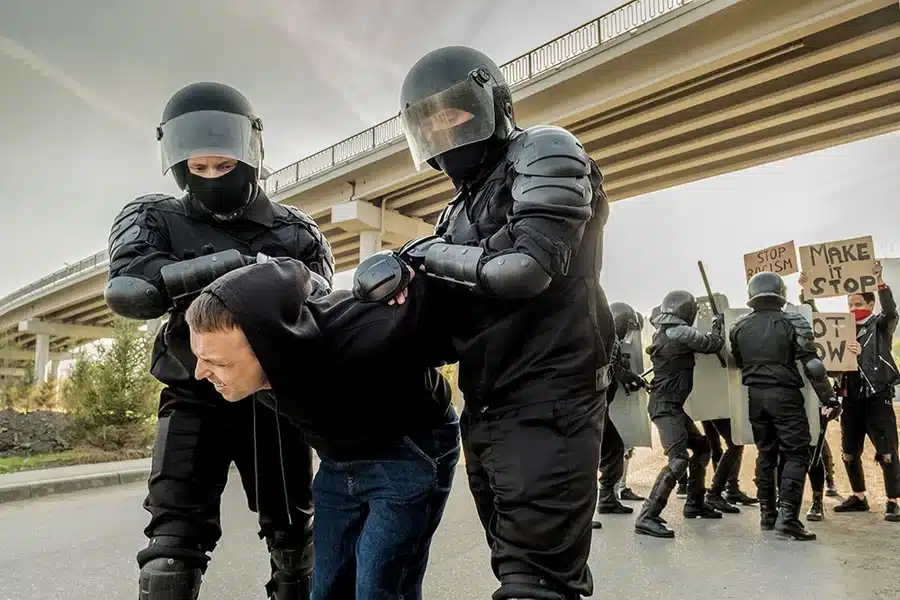According to a February 2025 article published on the USA Today website, the number of people killed by police increased slightly in 2024. Data show that police killed over 1,300 people in the United States in 2024, making it the deadliest year for police violence since tracking began in 2013.
A Long Beach police misconduct attorney advises victims of police misconduct to consult with an attorney immediately to determine their legal options. To recover damages, you must file a civil suit, but a formal complaint is still required.
If you are familiar with the proper legal procedures, you can strengthen your claims for holding law enforcement legally accountable.
This article will provide you with the necessary information on what steps to take following a police misconduct incident.
Understand Your Rights and Gather Evidence
Awareness of your rights is important, especially if you are facing police violence.
You have the right to remain silent and be granted access to proper legal counsel. These rights prevent you from incriminating yourself and allow you to defend yourself against accusations.
Record all the information related to the incident. Write a thorough account of the event while it is still fresh to maintain the accuracy of the evidence, as it may lose its quality over time. Be sure to include key information like dates, times, locations, and the names of any officers involved.
If possible, obtain contact information from anyone who might have witnessed the event. Their testimony can help strengthen your case.
Maintain detailed records to support evidence and use them for future legal action, care plans, and so on.
Report the Incident to Internal Affairs
Reporting the incident to Internal Affairs allows the department to investigate and hold the police officers responsible for the allegations leveled against them.
Compile and organize your evidence. Include witness accounts and relevant documents when you submit your report.
When speaking with Internal Affairs, it’s important to convey the facts in a clear and concise manner. Your report should highlight how the officer’s actions harmed you.
Remember to keep a copy of the filed report together with every correspondence received. Your report is an appropriate step toward justice and will help reduce future offenses.
Seek Medical Attention and Document Injuries
When dealing with police misconduct and violence, don’t forget to prioritize your health. Get medical help immediately. Even if you believe your injuries are minor, you should see a doctor to rule out any underlying complications that could lead to serious health problems.
Keep track of medical visits, treatments, or prescribed drugs. Photograph your injuries to document them extensively. Your medical bills can be used as proof of your injuries. If possible, write a journal that details how the injury affected your life and restricted your normal daily activities.
Consult With an Attorney Specializing in Police Misconduct
A police misconduct lawyer can only help you if you discuss your case in detail. These legal professionals can help you assert your rights and are experts in the law governing police conduct.
An experienced attorney will investigate all facets of your situation and inform you of your available legal options. They will collect evidence, speak with witnesses, and present the strongest case possible to assist you in obtaining a favorable outcome. Their invaluable legal assistance and support allow you to fight for your rights and receive the compensation you deserve.
Police misconduct lawyers will remind you of important deadlines and walk you through the legal processes to avoid making mistakes that cause unnecessary delays and stress. A competent lawyer will help you confidently oppose police violence.
File a Complaint With External Oversight Agencies
After consulting an attorney, submit a formal complaint to the relevant regulatory bodies.
Civilian review boards and state oversight commissions help to hold police accountable by conducting independent crime investigations and providing strong support for your claims.
Gather corroborating evidence, witness accounts, and incident reports. Keep in mind that insufficient evidence will weaken your complaint.
Do not be afraid to ask your lawyer for assistance in drafting and reviewing the complaint for accuracy, clarity, and completeness. After drafting a complaint, submit it to the agency in accordance with its submission rules and deadlines.



